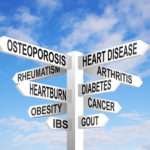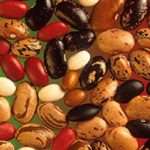Are You a Vegan with a Chronic Disease? Tell Me Your Story

Almost exactly three years ago, I asked blog readers to tell me their stories about going vegan after the age of 50. The feedback I received—almost 200 comments and emails—were an amazing source of information and inspiration for Never Too Late to Go Vegan (which, by the way, is available this month for e-readers for just $1.99).
For a new project, I’m looking for a completely different type of story. Are you a vegan with a chronic disease, like heart disease, cancer or diabetes? Or high blood pressure or elevated cholesterol that hasn’t dropped as much as you anticipated? Or are you a vegan with obesity? If so, I’d love to hear about your experience.
I’m not seeking stories about people who have reversed their ... Read More >
Yes, Vegans Can Climb Mt. Everest

Last week, a vegan named Kuntal Joisher successfully reached the summit of Mt Everest and came home to post photos to his Instagram account. Chances are, you didn’t hear much, if anything, about him. No doubt, though, you heard about another vegan climber, one who died while attempting to climb the tallest mountain in the world.
Of the nearly 1,000 internet articles generated by this story, some overtly questioned the safety of a vegan diet for climbers. By noting that she was a vegan in the headlines, every single one of the articles implied that this was somehow a relevant fact related to Dr. Maria Strydom’s death.
Dr. Strydom wasn’t some irresponsible dilettante when it came to big mountains. She ... Read More >
Vegan Diets Are Safe for Children

Last week, the Wall Street Journal reported about a preschool in Jersey City, NJ that offers only vegan food. The article kind of made me cringe. It made veganism look like a somewhat nutty, somewhat elitist diet that denies kids cupcakes at birthday parties.
But at the very least, it didn’t question the safety of vegan diets. An article in Slate magazine did question it, though. Science writer Melinda Wenner Moyer said that she “couldn’t help but wonder: Can kids actually get the nutrients they need on a vegan diet?”
One way to find out would be to ask actual experts on vegan nutrition. For example, Ms. Moyer could have called Dr. Reed Mangels, who has a PhD in nutrition, teaches at the University of ... Read More >
Vegan Food for People Who Don’t Cook

Recently, I had a taste of what it’s like to be a vegan who doesn’t cook.
For what seems like the past decade or so, I’ve been living with a kitchen remodel. Cooking while my kitchen was torn apart was not really a problem. I have an electric frying pan, an Instant Pot, and an Aroma Rice Cooker/Slow Cooker. I set them up in the dining room, creating a functional kitchen annex. But without running water (or a sink) plus some concurrent remodeling of the (very old) plumbing in the bathroom, clean-up was a challenge.
While I started out cheerfully cooking up black beans and quinoa in the Instant Pot and rice cooker, my cuisine quickly morphed into whatever could be made in the ... Read More >
Vegan Diets are Dangerous? Here is What the Research Really Says

Doctors at the Cleveland Clinic suggest that vegans should know something about diet planning in order to make sure they are meeting nutrient needs.
Their conclusions were published in the Journal of the American Osteopathic Association. The paper doesn’t say anything that is particularly alarming, and, with a few exceptions, there isn’t much in it that I would take issue with.
But the Cleveland Clinic press-released the findings, giving the media a chance to scaremonger about vegan diets—and you know how much they like to do that.
As is often the case, headlines didn’t exactly reflect what is in the paper. For one thing, it wasn’t a “study.” It’s a very short review, which means that it is a discussion of already-published research and doesn’t ... Read More >
Vegan Diets and Irritable Bowel Syndrome: The FODMAP Approach

One of the most frequent questions I get through this website is about the low-FODMAP diet. This popular approach to easing symptoms of irritable bowel syndrome (IBS) eliminates (at least initially) many plant foods. It’s definitely a bit of a challenge for vegans, but may be worth it if you suffer from IBS.
The FODMAP Diet
IBS affects as much as 15% of the population in North America, so it is no small problem. And while it’s not life-threatening, it can have a significant effect on quality of life.
The idea behind the low-FODMAP diet is that certain fermentable short-chain carbohydrates contribute to symptoms in people with IBS. Some of these carbs are poorly digested and some are not digested at all. Others, ... Read More >
New Vegan Nutrition Primer on Iron

Iron deficiency anemia is a serious and common public health problem for people eating all different kinds of diets. While vegans don’t seem to develop anemia any more often than people who eat meat, we do have higher iron needs. It’s hard to know just how much higher those needs are for individual vegans, though, since requirements depend on a number of other factors—including how much iron you have stored in your body and what the rest of your diet looks like.
You probably already are eating a diet rich in this mineral, but the key is to make sure you absorb as much of it as possible. My newest vegan nutrition primer on iron provides guidelines for meeting iron needs and improving its absorption ... Read More >
Your Vegan New Year’s Diet: Don’t Forget the Protein

It’s hard to resist the call of the New Year’s diet. There is something about the promise of new beginnings, especially after the season of indulgence.
If your goals for 2016 include weight loss, please make sure your vegan diet includes enough protein-rich foods. I’m not suggesting that you need to eat a high-protein diet. Nor am I saying that eating lots of carbs is bad. My concern is that some vegan weight loss plans are woefully short on legumes. A menu that consists of oatmeal and fruit for breakfast, vegetable soup and a salad for lunch, and a dinner of chili might very well help you lose weight. But, it’s not the best recipe for muscle and bone strength. I see this in the ... Read More >
New Year, Same Old (Vegan) Me

The promotional emails flooding my in box promise all kinds of tips and tricks for a “New Year, New You.” I had no idea that I was in such need of a total makeover. But these emails seem to assume that there is considerable room for improvement.
And sure, I suppose there is. I could stand to eat more fruit and fewer cookies. I should cook more from scratch. I should spend more time meditating and less time obsessing over Donald Trump’s presidential prospects. I should drag myself out of the house occasionally for cultural events instead of watching way too many re-runs of Law and Order. I should be more sociable and less solitary.
I could definitely be a better, more productive and healthier ... Read More >
Will a Vegetarian Diet Make You Depressed?

The recent article in Women’s Health Magazine about the “scary mental health risks” associated with meatless diets has—not surprisingly—received lots of attention. People love to hear bad news about vegetarian and vegan diets, after all.
Author Jill Waldbieser pulled the article together from the usual hodgepodge of questionable resources—in this case a few anecdotes plus comments from Vegetarian Myth author Lierre Keith. She also referenced two studies, one in Australia and one in Germany.
I took a quick peek at the German study, which assessed diet and mental health in a group of about 4100 subjects.(1) Subjects who said they were vegetarian or predominantly vegetarian were 15% more likely to report depressive disorders. But they were also likely to have adopted their vegetarian diet after ... Read More >
